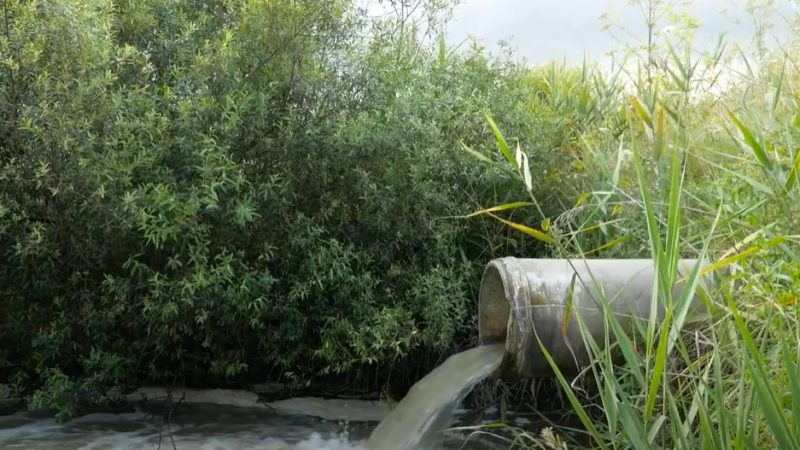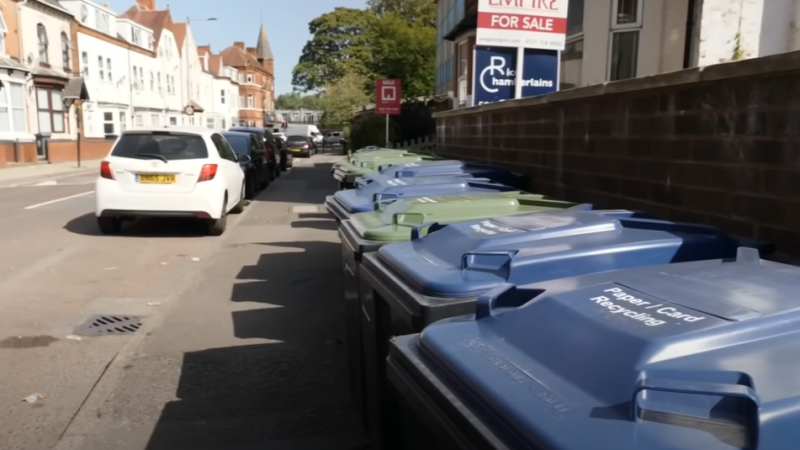Former SC Justice Madan Lokur. As properties of #Muslims are demolished by #BJP govts in 4 states, @whattalawyer& @areebuddin14
..police cannot, “under the guise of investigation”, bulldoze anyone’s house without permission, and if such practices continue then “nobody is safe in this country” ..: “Show me from any criminal jurisprudence that for investigating the crime, the police, without any order, can uproot a person, apply a bulldozer. .”
There are interventions of courts which are considered to be ‘breaking new grounds’.
The Gauhati High Court’s judgement in the ‘illegal demolitions’ at Salonabari (May 2022) was one such occasion.
The two-judge bench of the high court led by Chief Justice RM Chhaya and Justice Soumitra Saikia had come down heavily on the demolitions executed without following any procedure and declared such actions ‘illegal’ and compared the police actions akin to a ‘gang war’ and ordered compensation to the victims as well as actions against guilty officials.
Two years later, this issue was again before high courts recently, as the affected families had approached it for the government’s dilly dallying on compensation and actions against officials.
Much water has flown down the Brahmaputra and its tributary rivers during this period.
Today, it might be difficult to imagine how this judgement (2022) had suddenly acted as a ‘dampener’ to the bulldozer mania which had then caught on.
Starting from Uttar Pradesh followed by Madhya Pradesh, Gujarat and later Assam and Karnataka -– all Bharatiya Janata Party-ruled states – police were found to be increasingly resorting to similar vigilante justice.
No questions asked, no wait for court cases to finish, no need to engage in legal formalities
Be it a case of running away of adult couples or somebody being in conflict with law, or even in cases of communal violence, police was found to be increasingly resorting to similar actions.
Forget the fact that as per Constitution ‘due process’ has to be followed in any case; or how Article 300A underlines that “No person shall be deprived of his property save by the authority of law” the demolition spree went unheeded.
What was rather disturbing was that despite facts coming to the fore, such arbitrary state action was violating the settled principles of natural justice, such as the right to be heard and the right to prior notice, and the judiciary had preferred to maintain an ambivalent stand on such illegal demolitions. Despite a petition by an all-India organisation committed to minority welfare, the highest court did not even grant interim stay to such a demolition spree, mainly in Muslim majority areas (Frontline – September 9, 2022; Disturbing Signals, Page 18)
No doubt, in this ambience, the suo motu intervention of the Gauhati High Court was a breeze of fresh air.
Close on the heels of this intervention (May 2022), the Patna high court also had condemned the use of bulldozers by Bihar Police for demolishing the house of a woman without following the due process of law. When the petitioner alleged that the illegal demolition was carried out at the behest of some land mafia, the single-judge bench of Justice Sandeep Kumar said: “Is the bulldozer being run here too?” It then asked the police: “Whom do you represent, the state or some private person? You are creating a scene by demolishing anyone’s house with a bulldozer.”
After a cursory glance at the rapidly changing scenario, it can be said that the ‘dampener effect’ of the said judgement has just evaporated in thin air.
The Assam government did report to the HC that it had given compensation in the Salonabari case, but despite the fact that the HC mentioned how a government-appointed committee had admitted that death of a fishseller Safiqul Islam from the village was a ‘custodial death’, quoted in it was refusing to admit it so.
The fear and terror of the bulldozer seems to have made a rapid comeback.
For example, there were allegations raised by residents of a Muslim-majority village in Assam’s Karimganj parliamentary constituency about how they were being intimidated by forest department officials to vote for BJP or get ready for eviction with the help of bulldozers. To save themselves from any such eventuality, they had even approached a local court against these forest department officials.
The ‘bulldozer mania’ in BJP-ruled states seems to be back with a bang.
The state of Uttarakhand presents before us a special example.
It was only last year that the Supreme Court had stayed Uttarakhand HC’s Haldwani demolition order when residents of Banphoolpurwa, Haldwani, had approached it.
What had impressed the Supreme Court was that thousands of these people -- a large section of them belonging to minority communities -- had been living besides the railway lines for decades together, had proof of residence as well, in the form of ration cards etc., and as per Article 14 of the Constitution, it would be transgressing their fundamental rights if they were uprooted without making any alternate arrangements. The people had even launched a peaceful mass movement to defend their rights.
A year later a demolition operation undertaken by the district administration of an ‘illegally built madarsa mosque’ in this very area - under debatable circumstances - has resulted in violence leading to deaths of five people and injuries to many which includes few police persons as well. (February 8). The scenario has completely changed
Civil liberty activists, writers had questioned the big hurry to demolish these two ‘illegal structures’’, when both these structures were already in possession of the police and the matter was before the high courts, which was to deliberate over it on February 14. A section of media had also said that the administration allegedly lacked any order by the court to demolish these structures.
Inadvertently or so, the demolition operation in Haldwani has brought into short focus not only the workings of the state government but how it has fared since the past few years when it comes to defending minority rights.
The picture that emerges is not very encouraging.
It was November 2023, when Scroll had done a story titled, ”How state-backed Hindutva rhetoric is fuelling the ethnic cleansing of Uttarakhand’ penned by retired IAS officer Harsh Mander, which tells us about the ‘unprecedented turmoil’ through which the hill state is passing through where ‘[a]n influential and popular campaign for ethnic cleansing has gathered ominous momentum: a battle for the expulsion of all Muslims from the state. This crusade is tacitly supported by the state government.’ (-do-)
It mentions how under the name of ‘mazaar jihad’
[t]he state administration dismantled many of these 1,000 mazaars, unmindful that these were places sacred to local Muslims – and many Hindus – many more than a 100 years old. Caravan reporters write of Thapli Baba ki Mazar, a mazaar estimated to be a 150 years old. The caretaker of the mazaar said that they were not even given the chance to collect the remains of the body that had been laid to rest there. The majority of the devotees of the mazaar were Hindu. What were razed as mazaars in the forests were also small graves of the forest dwelling Van Gujjars. On forest lands, the administration also encountered Hindu temples, but these were not described as the outcome of any conspiracy or jihad.(-do-)
It would be cliche to say that demolitions in Haldwani/ Uttarakhand are no exception. It is part of the pattern in various BJP-ruled states since the past five years or so.
At the end of January 2024, Meera Bhayandar area in Mumbai witnessed similar targeting a of Muslim-owned properties when there was some conflict on the streets between fanatic elements on either sides.
It was during the same period that a teen arrested by the police on fabricated charges of ‘spitting on a religious procession’ was released by the MP High Court, after spending six months in jail when the complainant and witness in the case turned and denied police claims. What was shocking to know is that the day he was arrested by the Ujjain police, the house where he lived, which was built by his parents, was demolished by the police.
Much to the chagrin of the ruling dispensation, the punitive demolitions in BJP-ruled states’ have slowly become a cause of concern for human rights groups at the international level also. The release of two damning reports by Amnesty International is a testimony to this concern.
Titled “India: “If you speak up, your house will be demolished”: Bulldozer injustice in India, the first report has analysed the punitive demolitions of 128 properties in Assam, Delhi, Gujarat, Madhya Pradesh and Uttar Pradesh following episodes of communal violence and protests between April and June 2022.
It describes how ‘The targeted demolitions were instigated by senior political leaders and government officials and impacted at least 617 people ‘and how ‘almost two years later, Muslim families and business owners in the five states await compensation for losing their homes, businesses and places of worship. The Indian government’s de-facto policy of punitively demolishing Muslim properties for protesting discriminatory laws and practices, is an on-going phenomenon. This amounts to forced eviction and collective and arbitrary punishment under international law and must be immediately investigated.’
Whether there will be a let-up in the situation, is difficult to say.
The fact that this ‘colonial era method of collective punishment’ made a comeback when India was preparing to celebrate its 75th year of Independence is definitely a cause of concern.
What needs to be understood is that this model of vigilante justice by the state itself is a phenomenon that has gained new legitimacy during this decade of Modi regime
Such State-powered vigilantism is evident everywhere.
Recall how during the anti-CAA (Citizenship Amendment Act) anti-NRC (National Register of Citizens) movement – the Uttar Pradesh government led by Yogi Adityanath had issued recovery notices to people without similarly following any rule of law or method. Ultimately, it had to withdraw all such notices and even return the money of compensation it had taken from the people as fine.
It was Kheda in Gujarat (2022) when policemen there had tied Muslim men to poles and beat them openly on some complaint. This event had caused a state-wide uproar, which prompted the Supreme Court to intervene in the case. (January 24, 2024) Punishing the policemen for their act, it specifically asked the guilty policemen, under what law they had got this power of flogging.
What should not be forgotten is that the myth of invincibility that this government has woven around it, stands punctured.
A new alliance of Opposition parties committed to defence of the Constitution is unitedly carving out a new path to recover the old India where rule of law would prevail.
A new era of possibilities has opened up before us.
Whatever be the outcome of the Lok Sabha elections, the only possible way to stop such illegal and unjust actions is the unity of the people who are ready to say such actions cannot be done “in our name.”
It is time that peace, justice loving people of this country, especially the younger generation, who dream of living in a more equitable, harmonious world, take inspiration from the likes of Rachel Corrie, an American peace activist.
It was 2003, when a 23-year-old Rachel Corrie was crushed under an Israeli bulldozer when she was protesting the demolition of Palestinian homes in Southern Gaza.
Her sacrifice on a land which was foreign to her for the defence of the vulnerable, should inspire all.
We should raise our voice in unison and roar, ‘NOT IN OUR NAME’.
The writer is an independent journalist. The views are personal.











.png)